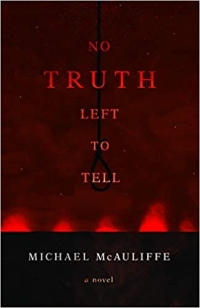Book Clubs (Including Virtual Book Clubs!)
The questions below are meant to stimulate discussion about the novel including its characters, events, historical references, and the important issues raised in the story. For example, the novel contains acts of both violent racial extremism and police brutality. Both issues continue to haunt our country even as we strive to be better and to do better.
-
Adrien Rush and Lee Mercer come from very different back- grounds. How do their differences influence how they see each another? Do they judge each other fairly? Does their relation- ship change over time? If so, how?
-
How does the fact that Adrien Rush is young and white affect his role investigating and prosecuting hate crimes in the South? Does he have standing to be a civil rights lawyer?
-
The Klan burned crosses at locations associated with various minority communities or groups in Lynwood. Do the victims in the story perceive the burning crosses differently from non- minorities? If so, why?
-
When do the events in the story take place? Are the issues raised in the story—race, police corruption, violent extremism, and the rule of law—still as relevant today as when the story unfolds?
-
Who is your favorite character in the novel? Why?
-
Is there a hero in the story? If yes, who is it and why?
-
Does Frank Daniels, the Klan’s grand dragon, have any re- deeming qualities? If so, what are they?
-
Frank Daniels and Adrien Rush both are depicted in the story as ambitious. What drives their ambitions? Are there simi- larities between Rush and Daniels? What is the significance of Daniels’s missing fingers and the fact that Rush is missing some of his toes?
-
What is the relevance of the Twins Motel to the story? Is it significant that Rush stayed there during his trips to Lynwood? Why do the novel’s most dramatic events take place at the Twins Motel?
-
Does Adrien Rush feel the same about all the victims? Does he treat Nettie Wynn differently than the other victims? If yes, what accounts for his different approach?
-
Despite the fact that the Klan burned the crosses in a town in the Deep South, the victims who were targeted reflect the changing demographics of Lynwood (and the nation). Com- pare the Deep South of the 1960s, 1990s, and today. Do the decades make a difference in how the country has tried to address racial violence? If so, how?
-
Rush is unwilling to make a decision about whether to reveal Detective Batiste’s lies until he meets with Nettie Wynn. Why? Was it fair for Rush to burden her with that decision? Why or why not?
-
Do you agree with Rush’s decision to tell the court about the Klansman’s confession being coerced? What would have hap- pened if he had remained silent?
-
Daniels and his followers did in fact burn the crosses to start a new race war. Does it matter that Daniels’s confession was true? Does the fact that Daniels murders someone after being released change your view?
-
Why did Rush want to be a prosecutor? Did Rush fail as a prosecutor?
-
What is more important: securing justice for the victims of the cross burnings or protecting Daniels’s civil rights? Why?
-
Numerous strong women, including Nettie Wynn, Nicole DuBose, Assistant US Attorney Kris Battle, Section Chief Kay Tipton, and US District Judge Gail Matthews, play significant roles throughout the story. How do these female characters help set the narrative’s tone? How does Rush treat women in the story? Is the novel a feministic story at heart?
-
What is Rush doing at the Lincoln Memorial in the last chap- ter? Does his presence at the memorial provide a clue about what Rush intends to do next?
-
What does a burning cross mean to you?
Link test

